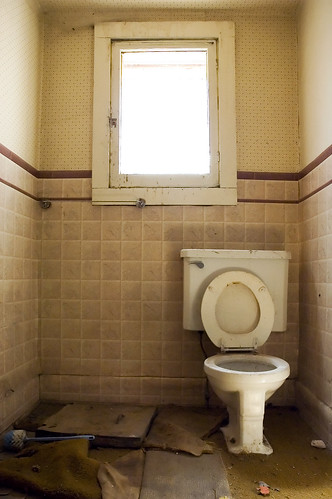

It's been a while since I've written. The inspiration comes and goes.
The school starts slowly on Fridays. The buses arrive a little late, and kids trickle into first period with groggy eyes. I arrived at 6:50 this morning, which for a normal day is on the late side, but today only a handful of people stood outside. The main door was locked, which meant that none of the directors were there. Quite naturally, I set my bike against the outside wall, climbed up until I was standing on the top of the frame. It was an easy mantle move up over the wall, and then a drop into the empty courtyard. I opened the doors, and the day continued as always, with the struggles and small victories of teaching and learning.
I've seen this stunt before, at a soccer game. I was sitting on the the top bleacher, at the edge of a high cinderblock wall, and a head pops up from the other side. Looking down, I saw a lankey Honduran tiptoe-ing on his parked bicycle. He waited for a moment of distraction, and in one rush of movement he was sitting, relaxed, on the bleachers. He had clearly made a habit of watching soccer games for free.
Maybe I am becoming Honduran.
I can't figure these kids out. They are uncontrollable at times, and then all they want to do is hug their teachers. If they see my on my bike, I take on an image beyond school. I am not just their teacher, but the teacher with a bike. It's really encouraging to see my students pressing their noses to the car windows and waving urgently, yelling ''Mister!''. Maybe most flattering of all is a quiet kid, Edgar, who came to school with a haircut like mine. Hopefully, I am affecting them in some quiet part of their childhood.
The kids bring me fruit. They want to share with me. Today I got three licha, which are spiny, red casings with grape-like meat inside.
Children's books always end with some whimsical high-note. Like in the story with cats trying to cook, the messes are happy learning experiences. I think that part of the goodness of childhood is seeing the world as neat and orderly, authored with a happy ending in mind. We don't like to talk to kids about the terrible nature of the world, and for some good reasons.
My experience is at times bright and joyful, like a book for children, where all the appliances in the kitchen are labelled, and the explosions in the oven are invitations to laugh.
- The Mister climbs the wall, now everyone can go to school.
- The Mister rides his bike! Ride, Mister Brett, ride!
The opposite is, of course, true. My class has grown from a full 25 to 27. I remember guiding river trips on the Ocoee, and some days I would have a seventh person (from the usual six) in my raft. The weight, apparent in every turn, was exciting and above all stressful. The paddle would bow under the pull of the water: the strain of a small rudder directing the mass. Class is indeed stressful. In order to check on all the kids, I can spend 10 seconds with each one and then move on.
And yet, the fruit and waving kids are simple enough. The world can be good enough, if I stop thinking about the difficulties so much. Children's books are true in their own way, because they have faith in the simplest things: sun-lit kitchen windows and cups of tea.
See some pictures here:
http://appstate.facebook.com/album.php?aid=2115209&l=08892&id=29705820









